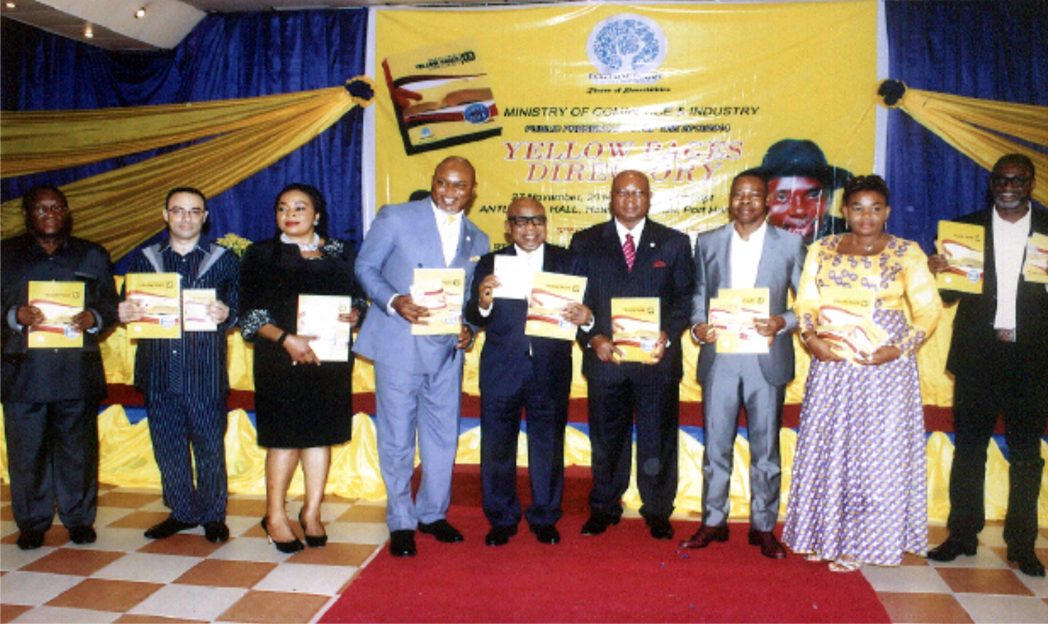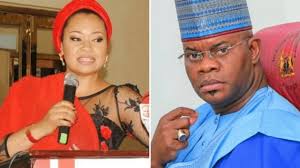Business
NERC Commends PHED On CAPMI Implementation
The Nigerian Electricity Regulatory Commission (NERC) has commended the Port Harcourt Electricity Distribution Company (PHED) for adhering to the commission’s directive to ensure that all electricity consumers are metered.
Chairman of NERC, Sam Amadi, who made the commendation during the Commission’s Public consultation and fact finding mission on the Credited Advance Payment For Metering Implementation (CAPMI) in Port Harcourt on Thursday, said the commission was established to protect the interest of the Nigerian electricity consumer and said PHED was able to meet the deadline issued by the regulatory body to meter all its consumers.
Amadi who was represented at the event by the Commissioner, Government and Consumer Affairs, NERC, Dr Abba Ibrahim, said the CAPMI programme was introduced for low income earners to pay less than what they are currently paying for the same amount of electricity consumed.
He said NERC in June 2012 ordered all distribution companies to ensure that all consumers are metered and billed accurately, stating that the idea was to ensure that consumers pay what they consume and to ensure that electricity companies provide the Nigerian consumer with steady power supply and efficient customer services.
The commission’s boss, said the main purpose of CAPMI is metering, stressing that over 50 per cent of electricity consumers are not metered, and explained that the commission after enquiring years back set up a committee which submitted a comprehensive report, and made some recommendations.
According to him, based on the recommendations, the commission had to provide solution to move the electricity sector forward and insisted that all distribution companies must meter their customers within 18 months and that order was made on 1st June, 2012.
‘’ We promised electricity consumers that they will no longer pay for what they do not consume. Under the CAPMI programme customers will not pay in bulk to acquire a pre-paid meter as the cost has been reduced and spread across their tariff. Customers only have to pay an approved connection fee’’, he said.
He however said the CAPMI initiative will further ensure that consumers only pay for what they consume which at the end will bring an end to estimated billing, adding that it will open the power sector to private investors to improve power generation and distribution in the country.
Amadi however said, that NERC is the body that regulates electricity in the country and was established to protect the interest of the Nigerian electricity consumer, adding that the commission organized the occasion to find out if the order has being adhere to and respond to issues bothering on customers.
During the presentation on the Credited Advance Payment for Metering Implementation, (CAPMI) by NERC, Mr Anthony Essien explained that willing customers can be allowed to advance funds for the purchase and installation of pre-paid meters.
He said these advance payments are subsequently refunded through a rebate on fixed charge element of their electricity bills, adding that the introduction of CAPMI minimizes estimation billing and enhances revenue collection.
He however said NERC came up with the concept due to numerous customer complaints indicating a high level of dissatisfaction with the way they are billed by distribution companies, adding that the commission considers it expedient to explore other avenues of ensuring that customers are metered to eliminate wildly estimated bills.
However, the Port Harcourt Electricity Distribution Company (PHEDC) in its presentation at the event, said the company had to entered into a partnership with a commercial bank, Ecobank, to ensure that willing Consumers get pre-paid meters within 45 days
Engr. Godwin Orovwvororo said PHED has a policy to fully meter all her customer and end the abuse of estimated billing and reduced commercial losses.

L-R Chairman, Civil Service Commission, Rivers State, Mr. Ngo Martyns Yellowe, Chief Nabil Saleh, GM, Radio Rivers, MS. Mediline Tador, Commissioner for Commerce and Industry, Hon. Chuma Chiny, M/D, Welted Ltd., Mr. Perro Egbe, Commissioner for Environment, Rivers State, Dr. Nyema Weli, Waste, Management, Rivers, Ade Adegun, Perm. Sec. Ministry of Commerce and Industry, MS. Kadilo Brown, Commissioner for Transport, Hon. George Tolofari during public presentation of the yellow page Directory, organised by commerce and industry ministry in Port Harcourt, recently. Photo: Egberi .A. Sampson
Business
AXA Mansard Backs Female-Owned MSMEs With N1.4m Grant

A global leader in insurance and asset management, AXA Mansard, has supported three female-owned MSMEs with business grants totaling 1.4 million to boost their operations.
This, the company said, is part of its commitment to women and the Medium, Small, and Medium-scale Enterprise (MSME) sector in the country.
The three businesses were successful at the International Women’s Day Pitch Competition, organised in partnership with SME 100 Africa in Lagos.
According to the Head of Marketing, AXA Mansard, Olusesan Ogunyooye, the competition, which is aimed at supporting female entrepreneurs in Nigeria, “is another way AXA is demonstrating its commitment to the causes of women and stimulating the MSME sector in Nigeria”.
The business pitch competition received numerous entries from women across different sectors, but after a rigorous selection process, shortlisted participants were selected to participate in the competition.
Ogunyooye said “the programme provided a unique opportunity for women from various works and socio-economic classes to showcase their innovative ideas and solutions in sectors such as food, tech, fashion, and fragrance, creating an atmosphere filled with excitement, enthusiasm, and a strong sense of community”.
He stressed the importance of investing in women, saying it is not just the right thing to do, but also aligns with AXA’s purpose of acting for human progress.
He explained that AXA believes the future of women should not be at risk, hence investing in their economic empowerment is a crucial part
Business
Fuel Scarcity’ll Last For Two More Weeks -IPMAN

The Independent Petroleum Marketers Association of Nigeria, IPMAN, said yesterday that the petrol scarcity currently spreading to more states across the country will take at least two weeks to normalise.
This is even as the Nigerian National Petroleum Company Limited, NPCL insisted yesterday that it has adequate stock of the product.
However, the Public Relations Officer of IPMAN, Chinedu Ukadike, said the product is not available in the country.
He said it has become a bit of a challenge to source the product because most refineries in Europe are undergoing turnaround maintenance.
Ukadike also blamed the acute shortage in supply on importation bottlenecks and the slow pace of marketers’ licence renewal by the Nigerian Midstream and Downstream Petroleum Regulatory Authority, NMDPRA.
He disclosed that only 1,050 marketers out of 15,000 have had their licences renewed by NMDPRA.
He said: “The situation is that there is no product. Once there is a lack of supply or inadequate supply, what you will see is scarcity and queues will emerge at filling stations.
“On the part of NNPCL, which is the sole supplier of petroleum products in Nigeria, they have attributed the challenge to logistics and vessel problems.
“Once there is a breach in the international supply chain, it will have an impact on domestic supply because we depend on imports. I also have it on good authority that most of the refineries in Europe are undergoing turnaround maintenance, so sourcing petroleum products has become a bit difficult.
“NNPC Group CEO has assured us that there will be improvement in the supply chain because their vessels are arriving. Once that is done, normalcy will return. This is because once the 30-day supply sufficiency is disrupted, it takes two to three months to restore it.
“We expect that by next week or so, NNPC should be able to restore supply and with another week, normalcy should return”.
On challenges faced by marketers in renewing their licences, he said: “NNPC has said the marketers who have not been able to renew their licences will not be allowed to remain on their portal which has been shut for some time now. Because of this, we have not been able to request new products.
“At this nascent period of deregulation, you will discover that this leads to scarcity, even when the product arrives. As it is now, even by their data, out of 15,000 marketers that are on the portal with licences, only 1,050 renewed their licences.
“The requirement for renewal by NMDPRA is so much. Marketers are facing a hostile environment. NNPC placed a deadline of April 15, 2024, for marketers to renew their licences.
“We are, therefore, appealing to NNPC to extend this deadline and also to NMDPRA to hasten the release of licences of marketers who have completed their processes, and also reduce bottlenecks around licence renewals”.
However, reacting to the crisis yesterday, Chief Corporate Communications Officer, NNPC Ltd, Olufemi Soneye, expressed optimism that the long queues will clear in the coming days, adding that NNPC Ltd has adequate stock.
He stated: “The Nigerian National Petroleum Company Limited, NNPCL, wishes to clarify that the tightness in the supply of Premium Motor Spirit currently being experienced in some areas across the country is a result of logistics issues and they have been resolved.
“It also wishes to reiterate that prices of petroleum products are not changing. It urges Nigerians to avoid panic buying as there are sufficient products in the country.”
Similarly, the Chief Executive Officer/Executive Secretary, Major Energy Marketers Association of Nigeria, Mr. Clement Isong, said: “As the NNPC Ltd said, there were logistics issues and they have been resolved. The marketers who have fuel, are working round the clock and the queues will be cleared in the coming days.”
However, the shortage of petrol witnessed in Nasarawa, Niger, Abuja, the Federal Capital Territory, FCT, last week, spread to Lagos, Oyo, Osun and other states, weekend, thus affecting the movement of goods and persons and by extension, the nation’s economy.
In Lagos, motorists and other users woke up yesterday to witness long queues at the few filling stations which had the product to sell, while many outlets belonging mostly to independent marketers, without the product, were closed.
However, some major marketers, including 11 Plc and NNPC Ltd, with stocks sold the product at over N600 per litre, while the few independent marketers with the product sold it at between N650 and N700 per litre, depending on location.
Checks by The Tide’s source indicated that many motorists and other users were compelled by circumstances to patronise black market operators who openly sold the product along Ikorodu Road, Isolo and other locations in jerry cans at between N900 and N1,000 per litre.
Further checks indicated that transporters increased fares by 100 per cent to cover the high cost of petrol.
For instance, commuters paid N2,000 from Mile 12 to Mile 2, a distance that used to cost them N1,000, while others paid N1,000 from CMS to Mile 2, which previously cost about N500.
The fuel situation in the ancient city of Kano worsened yesterday as most of the petroleum stations were shut.
Vanguard checks observed long queues in the few filling stations still dispensing the product in the state capital.
It was observed that independent marketers and some major marketers who were seen selling fuel sold it as high as between N850 and N900 per litre.
Business
‘Foreign Shipowners Deprive Nigeria Of $9.2bn Annually’

Experts in the maritime sector have said Nigeria loses $9.2billion annually to foreign shipping lines handling cargo that a national fleet is supposed to handle.
A former Chairman of the National Fleet Implementation Committee, Hassan Bello, who disclosed this, Friday, at the inauguration of the new executives of the Shipowners Association of Nigeria in Lagos, said the national fleet should be an initiative of the private sector.
“$9.2bn lost annually to foreigners. This is trade that goes to foreign-owned shipping companies or carriers. You could imagine what that could do to our economy if we had a national fleet.
“The national fleet should be an initiative of the private sector but the government should encourage it”, Bello said.
Bello, a former Executive Secretary of the Nigerian Shippers Council, stated that all the earnings that were supposed to come to Nigeria now go to foreigners, creating employment for them.
Noting the importance of having indigenous participation in international trade, he said “you know the significance of having indigenous participation in international trade: 90 per cent of international trade is done through the sea, carried by ships from one country to another.
“And we have been missing in action, that’s the whole problem. We need to be elusive, unequivocal, and deliberate in our efforts. That is why it is important for this association. We will see it as one of the efforts to take us out of the dungeons”, he asserted.
The former Executive Secretary of the Nigerian Shippers Council lamented that Nigeria operated a monoeconomy, wholly dependent on the export of a single commodity, which is crude oil.
“We have to own and operate indigenous tonnage, purely private sector driven by providing incentives that are the function of a government, friendly operating climate, like tax holidays, and a wide range of very important incentives, which other countries have used.
“We have no time to do that. We are talking about tax holidays. We are talking about fiscal policies, legal, and the policy changes”, he stated.
Also, the immediate past President of the SOAN, Dr McGeorge Onyung, expressed disappointment that Nigeria was not capitalising on the $14trillion ocean economy.
Onyung, who is also the Managing Director of Jevkon Oil & Gas, declared that by ferrying equipment and materials needed for the Lagos-Calabar rail line project from China, Nigeria inadvertently enriched Chinese shipowners instead of retaining that freight money within the country.
“The economy of this country would not improve if we don’t diversify into the ocean economy. The fact is very clear that without shipping, there is no shopping. If you don’t remember anything today, please remember that without shipping, there is no shopping.
“Now, we are building a railway from Lagos to Calabar. I don’t know how much that will cost. I don’t know how long it will take. But all the wagons and the rails must come from China, wherever, by sea. And it should be ships that should bring them in. So, we should start making the money before the railway is constructed”, stated.
Meanwhile, the new President of SOAN, Sonny Eja, lamented that poor ship acquisition was affecting the nation’s maritime sector.
-
Politics3 days ago
Fubara’ll Leave Rivers Better Than Expected – LG Boss
-
Sports3 days ago
Eaglets Held In Pre-WAFU Friendly
-

 News10 mins ago
News10 mins agoFubara Tasks GPDA On Prosperous, Liveable City
-

 News3 days ago
News3 days agoRHI: Lady Fubara Donates 50,000 Books To Public Schools In Rivers
-
Women3 days ago
The Wise Woman
-

 Nation3 hours ago
Nation3 hours agoYahaya Bello: Senator Hails EFCC’s Probe Of N80.2bn Fraud
-
Niger Delta3 days ago
Steer Clear Of NNS Delta, Commander Warns Criminals
-
Business3 days ago
‘Gas Infrastructure Devt, Key To Energy Sector Growth’

